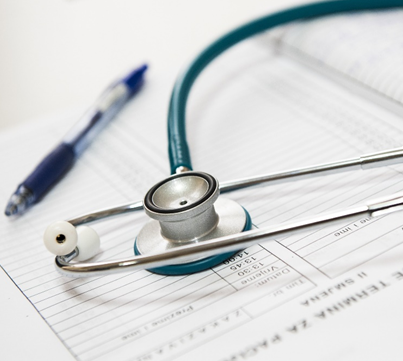Barcodes have become such a powerful piece of technology that it would be difficult to think of an industry that would not benefit from using them. This sentiment can also be applied to the healthcare industry – where barcodes are used in almost every step of the healthcare process. From the second the patient comes through the hospital doors, right through to when they fetch their medicine from a pharmacy, barcodes are used in order to help doctors keep a record of their medication, what is in inventory and even the location of their patients themselves!
While it is obvious that barcodes are used in the healthcare industry for many different functions, the common goal is simple; to ensure the safety of patients. Let’s take a closer look at how, when hospitals buy barcodes, they are being used in the healthcare journey:
To manage medication:
Law requires that some medication be identifiable with a barcode. The information that is contained in this kind of a barcode includes the identification number consisting 10 digits called a National Drug Code. This code indicated the name of the drug, what the recommended dosage is, who the manufacturer is and the date of expiration. This information is of the utmost importance, especially to nurses who work by the 5 administration of medication rights, “right patient, right medication, right dose, right time and right route of administration”. When you buy a barcode, hospitals ensure that this sentiment is upheld. Studies have shown that the correct usage of barcoding in the healthcare industry has prevented close to 100 000 life-threatening medical mistakes each year.
Ensuring blood transfusion safety:
Blood banks are one of the largest users of barcodes in healthcare. It is now required by law that all blood, including all its elements, have their own unique barcode so as to eradicate mistakes in blood transfusions possesses. Barcodes of this kind contain information with regards to the origin of the blood, the ID number of the donor, an indication of the blood type and the product code. Barcodes of this kind further cement the safety of patients, as it helps ensure that patients receive the correct blood.
Patient identification:
While it has been the practice for many years that patients in hospitals are required to wear bracelets that serve as identification, it is becoming more of a common practice for these bracelets to now include barcodes too. This allows both patients and doctors an extra layer of safety, in that by scanning the barcode a doctor can ensure that he is giving the right patient the right treatment. This form of barcoding can be referred to as portable point-of-care technology and not only serves to make costs lower but, in addition, it also strengthens proficiency and patient protection.
When collecting specimens:
You can imagine what a nightmare it is when specimens in a lab get muddled up, causing a patient to receive an incorrect diagnosis. It is an unfortune fact that this exact situation happens more times than you can imagine – close to 200 000 mistaken medical diagnosis happen every year due to laboratory mishaps of misidentification. What this means is that countless patients are given diagnosis that actually belong to someone else, and then are given treatment for an illness or disease that they do not actually have, and end up getting more ill. Through the implementation barcoding – the system of labelling lab specimens will be more accurately done and more patients will receive better medical care and attention.
Managing inventory:
Inventory control and management is a long and dreary process in any industry, but with hospitals managing millions of assets every day – the process is an even more burdensome one. Applying a barcoding system can help maintain a record of materials and accelerate how long it takes to order replacements. What is especially great about a barcode scanning system in hospitals is that it allows for an automatic reorder to be set, so that once the stock level of a certain medicine is brought up once scanned, this product will automatically be reordered without any action needed from the person on the other side of the scanner. Barcodes also allow the hospital to keep track of who manufactured any equipment or other stock they purchased, so that if there is damage to anything ordered it can easily be sent back to the source for a refund or replacement.
Barcodes are invaluable in the healthcare industry. This is especially so because they allow healthcare professionals not only to maintain inventory levels so as to ensure there is never a shortage of vital medication or equipment, but also because they ensure each patient is given precisely the care they are in need of.
If you are looking to buy barcodes South Africa has many great resellers! Here is a great one I found www.sabarcodes.co.za

